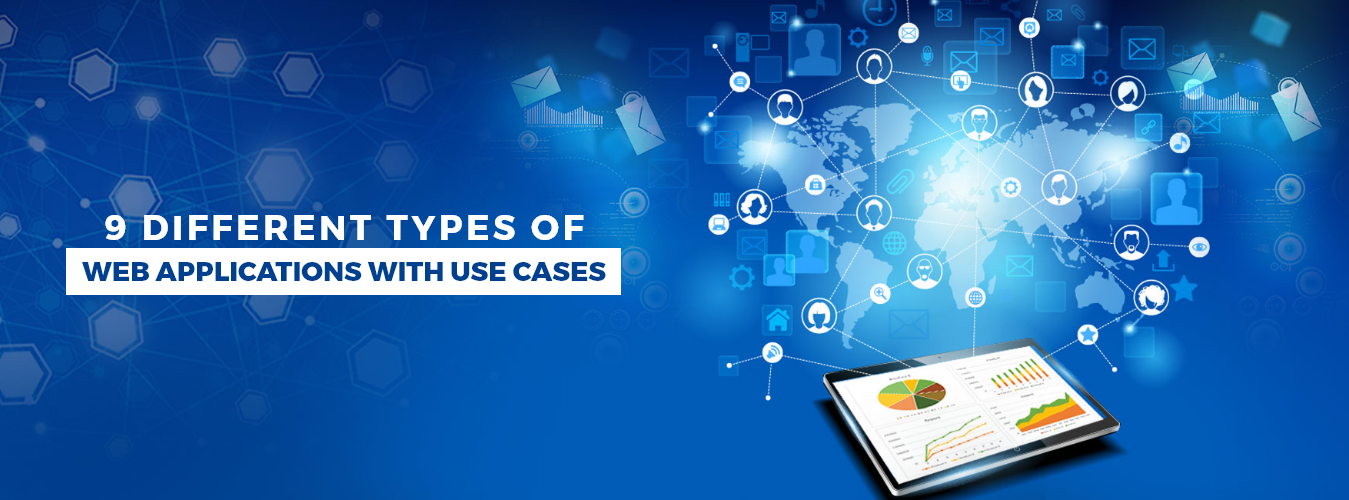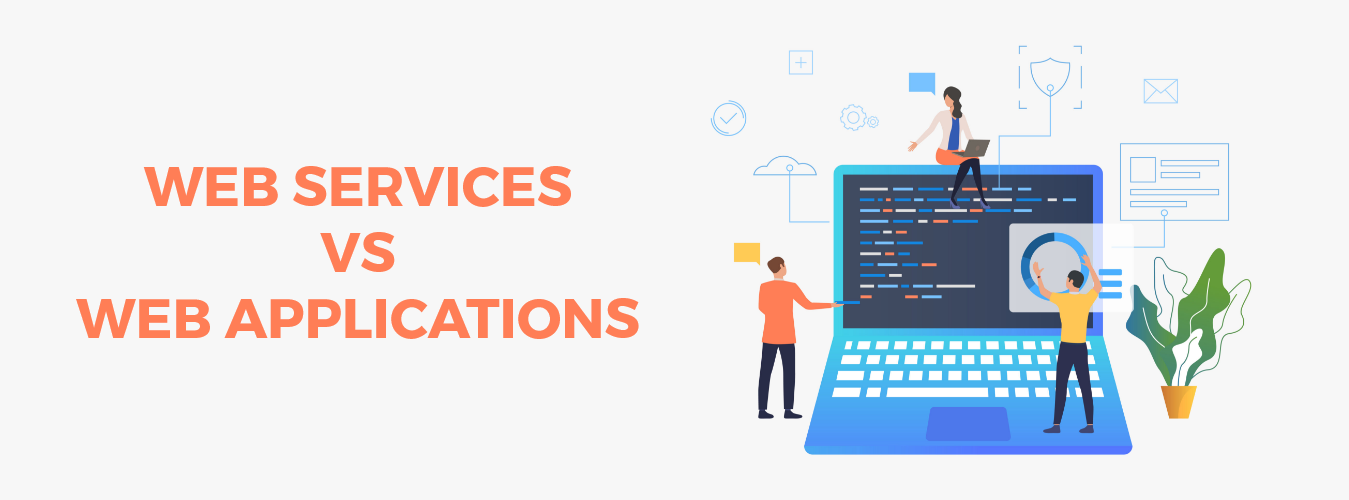As a company owner or entrepreneur, you always look for ways to enhance your processes, attract new clients, and boost sales. Web apps are one of the most efficient ways to accomplish these objectives. With these technologies, you may improve client experience, optimize business procedures, and increase your internet presence. This article will give an overview of examples of web applications and they might transform your company.
Crafting Your Ideal Mobile App/Experience Starts Here!
Ready to elevate your business? Your custom app is just a click away.
Yes Let’s goIntroduction to Web Applications
A web application, also called a web app, is a piece of software that runs on a web server and is accessible via a web browser. Unlike conventional desktop software, web apps don’t need to be installed and are accessible from any device with an internet connection. They are often made to carry out particular activities, such as organizing data, automating work, or offering internet services.
With good cause, web apps have grown in popularity over time. Compared to conventional software, they have several benefits, such as:
Accessibility
Web apps are more handy for users because they can be used on any device with an internet connection. They don’t need installation or upgrades, which can help organizations save time and resources.
Scalability
Web applications are easily scaleable up or down to meet shifting demand. They are, therefore, perfect for companies that deal with changes in user activity or traffic.
Cost-Effectiveness
Due to the lack of hardware or software installation, web applications are frequently more affordable than conventional desktop applications. Additionally, they can be created utilizing open-source tools to avoid paying licensing fees.
Also Read: What is a Web App Developer?
Benefits of Web Applications for Businesses
Web applications offer several benefits for businesses, including:
Greater Efficiency
Web apps can expedite company procedures, eliminate manual errors, and automate repetitive chores. Businesses may be able to do this to save time and money while concentrating on more crucial duties.
Customer Experience Is Improved
Web apps can offer users a seamless online experience, allowing them to access services and information swiftly and conveniently. Customer loyalty and satisfaction may increase as a result.
Higher Revenue
Web applications can broaden a company’s market reach, improve online sales, and attract new clients. Additionally, they can offer insightful information on consumer behavior and preferences, helping firms decide on their marketing and sales tactics.
Also Read: Web App Development: 7 Steps to Creating Amazing Apps
Types of Web Applications – A Brief Overview
There are several types of web applications, each designed for a specific purpose. Here are some of the most common types:
Content Management Systems (CMS)
Businesses can generate, manage, and publish digital content on their websites thanks to CMS platforms like WordPress and Drupal. They offer non-technical consumers a user-friendly interface for managing their website content.
E-Commerce Web Apps
Thanks to e-commerce tools like Shopify and WooCommerce, companies may sell goods and services online. They offer functions like order management, payment processing, and shopping carts.
Customer Relationship Management
CRM platforms like HubSpot and Salesforce enable companies to manage client interactions and relationships. They offer services, including lead nurturing, contact management, and sales forecasting.
Human Resources Management (HRM) Systems
Businesses can manage employee data, payroll, benefits, and performance thanks to HRM systems like BambooHR and Workday. They give HR chores a centralized platform, simplifying managing people and resources.
Web Applications Examples for Businesses
After going through the fundamentals of web applications, let’s look at real-world examples of how they may transform businesses.
Example 1: Online Booking System
Businesses can automate their appointment scheduling process using an online booking tool like Acuity Scheduling or Appointy. Through the web app, customers may make appointments, eliminating the need for manual planning and coordinating.
Example 2: Project Management Tool
Businesses can manage their work and projects more effectively using a project management application like Asana or Trello. The online application offers a centralized platform for task assignments, communication, and progress tracking.
Example 3: Customer Portal
Organizations with a customer portal like Zendesk or Freshdesk may offer better customer service and assistance. Customers can use the online app to file support tickets, follow up on their requests, and contact the support staff.
Example 4: Social Media Management Tool
Businesses can better manage their social media presence using a social media management tool like Hootsuite or Buffer. The web app offers social listening, analytics, and content scheduling functions.
Example 5: Online Learning Platform
Businesses can assist with staff training and education using an online learning platform like Udemy or Coursera. The web app offers a platform for delivering course materials, monitoring progress, and awarding certification.
Example 6: Inventory Management System
Businesses can manage their inventory more effectively using an inventory management tool like TradeGecko or Zoho Inventory. The web application offers order administration, reporting, and stock tracking functions.
Example 7: Email Marketing Software
Businesses can reach their target audience more successfully using email-marketing tools like Mailchimp or Constant Contact. The web application offers analytics, list management, and email design options.
Example 8: Virtual Event Platform
A virtual event platform, like Hopin or Airmeet, can assist companies in hosting online conferences and events. The web application offers functions like networking, chat, and live broadcasting.
Example 9: Online Payment Gateway
Businesses can take online payments safely and conveniently with a payment gateway like PayPal or Stripe. The online application offers reporting, fraud detection, and payment processing functions.
Custom Web Application Development Services
While many off-the-shelf web applications are available, businesses may need a custom solution tailored to their specific needs. Custom web application development services can provide businesses with a web app that meets their unique requirements.
Advantages of Custom Web Application Development
Some advantages of custom web application development include the following:
- Tailored to specific business needs
- More control over functionality and design
- Integration with existing systems and processes
- More secure and scalable than off-the-shelf solutions
Choosing the Right Web Application Development Company
When choosing a web application development company, businesses should consider factors such as:
- Experience and expertise
- Reputation and client testimonials
- Project management and communication
- Cost and timeline
Conclusion
Your company can experience a revolution thanks to web applications that boost productivity, improve customer satisfaction, and boost income. Businesses might choose a solution that satisfies their unique requirements among the range of web application examples accessible. Custom web application development services can give companies a solution that fits their current procedures and systems. Businesses may construct a web app that helps them achieve their objectives and stay ahead of the competition by selecting the best web application development company and adhering to a structured development process.
Crafting Your Ideal Mobile App/Experience Starts Here!
Ready to elevate your business? Your custom app is just a click away.
Yes Let’s go







